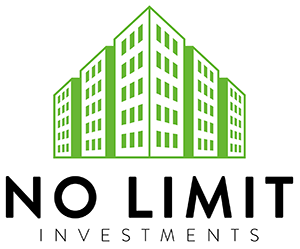What Are Private Money Lenders and Why Do They Matter in Real Estate Investing?
Private money lenders are individuals or companies that offer real estate investors loans based primarily on the value of the property rather than the borrower’s credit. Unlike traditional banks, which require lengthy approval processes, private lenders focus on asset-based lending to provide faster, more flexible funding options. These lenders are critical in today’s competitive market because they make it possible for investors to act quickly on opportunities that require immediate capital.
Private money lenders are often used for real estate investment loans when banks cannot offer terms quickly enough or deny financing due to stricter credit requirements. The ability to close fast and operate with fewer restrictions makes them a strategic choice for investors engaged in short-term property loans or those pursuing a buy, rehab, rent strategy.
How Do Private Money Lenders Fit Into Real Estate Funding Strategies?
Private money lenders are a cornerstone of successful real estate funding strategies. These lenders are especially helpful for fix and flip financing or property rehab loans, where time and speed are crucial. By leveraging private capital, investors can bypass traditional lending roadblocks and secure fast real estate loans that enable quicker property acquisition and renovation.
Hard money lenders, a type of private lender, often serve as go-to partners for investors needing short-term capital for high-return projects. They assess the after-repair value (ARV) of a property rather than solely focusing on borrower credentials, which allows investors with less-than-perfect credit to still gain access to funding.
What Makes Private Money Lending Ideal for Fix and Flip Projects?
Fix and flip projects require speed and certainty. Private money lenders are uniquely positioned to support these ventures because they understand the real estate market and the urgency of short-term investments. These lenders prioritize the property’s value and potential rather than the borrower’s financial history, which accelerates the underwriting process.
The success of fix and flip financing often depends on how quickly funds can be deployed and how easily the borrower can cover renovation costs. Private money loans help bridge these gaps, supporting renovations that ultimately increase ARV. This type of investment property financing has become a reliable solution for investors seeking funding for house flipping with minimal delays.
When Should You Use Bridge Loans for Real Estate Deals?
Bridge loans for real estate are short-term financing tools that help investors cover costs while transitioning from one property or funding source to another. These loans are especially useful in scenarios where an investor has a deal lined up but is waiting on the sale or refinancing of another property.
Using bridge loans allows for strategic timing in property acquisition. Investors can avoid missing out on lucrative deals due to liquidity issues. This kind of alternative real estate financing supports smooth transitions and gives investors a flexible way to continue expanding their portfolios without interruption.
How Can Private Lending Accelerate Real Estate Portfolio Growth?
Private money lenders empower investors to scale their businesses by funding multiple deals with private lenders simultaneously. The flexibility of these lenders, combined with their willingness to structure deals around specific project needs, allows investors to expand beyond what traditional financing would permit.
By using equity to scale real estate investments, investors can leverage existing properties to secure more funding. Private loans typically allow for higher loan-to-value ratios (LTV), which increases the total capital accessible for reinvestment. This approach aligns with broader real estate leverage strategies that aim to maximize returns and expand ownership quickly.
What Are the Long-Term Benefits of Using Private Money Lenders?
While many investors associate private lending with short-term property loans, the benefits can extend well beyond a single transaction. Investors who consistently use private lenders develop relationships that lead to better terms and faster funding over time. Additionally, using private capital allows for more creative financing structures that adapt to specific project timelines.
Private lending also enables access to passive income real estate opportunities. For instance, long-term rental property loans obtained through private lenders can help build steady cash flow while increasing asset value. The key is selecting the best loan options for real estate investors that align with individual goals and investment horizons.
Why Is Understanding LTV and ARV Crucial in Private Lending?
Understanding the loan-to-value ratio (LTV) and after-repair value (ARV) is essential when working with private money lenders. These metrics determine how much money a lender is willing to offer and what terms are applied. A strong LTV can indicate lower risk, while a compelling ARV shows the property’s potential post-renovation.
In real estate debt financing, knowing how to evaluate and present these figures can make the difference between securing a loan and missing an opportunity. Lenders will typically base their decision on these numbers, so a well-researched valuation strengthens the borrower’s position.
How Do You Get Started with Private Lending Partners?
To get started with private money lenders, investors should be prepared with clear financials, a detailed plan, and a demonstrated understanding of the property’s value and potential. Knowing how to get funding for house flipping or rental conversions starts with researching lenders that specialize in real estate investment loans.
Establishing credibility is key. Investors should build a track record of success or partner with experienced teams to gain initial trust. Platforms like No Limit Investments provide professional guidance and access to reputable lending partners. Their experience in connecting investors with private lenders ensures fast closings, favorable terms, and strategic alignment.
Ready to Scale with Private Lending? Here’s the Next Step

If you’re serious about expanding your real estate portfolio, now is the time to consider private money lending. Whether you’re pursuing fix and flip financing, looking to capitalize on bridge loans, or seeking long-term rental property loans, private lenders offer unmatched speed and flexibility.
At No Limit Investments, we specialize in helping investors scale through customized financing. Our team connects you with trusted private money lenders who understand your vision and are ready to fund your next move. Don’t wait for a traditional lender to say “yes”—take control of your investment journey today. Visit our site to schedule your free consultation.
What Is the Future of Private Lending in Real Estate?
Private money lenders for real estate are expected to play an even larger role as markets become more competitive and traditional lending becomes more restrictive. The agility and customized approach they offer are becoming essential tools for investors who want to stay ahead.
From accessing fast real estate loans to developing long-term real estate leverage strategies, private lending provides a foundation for strategic, sustainable growth. With careful planning and the right partners, private capital can be the engine that powers your real estate success for years to come.
Works Cited
U.S. Department of Housing and Urban Development. “FHA Single Family Housing Policy Handbook.” HUD.gov, https://www.hud.gov/sites/documents/4000.1HSGB.PDF. Accessed 25 June 2025.
National Association of Realtors. “2024 Investment and Vacation Home Buyers Survey.” NAR.realtor, https://www.nar.realtor. Accessed 25 June 2025.
Internal Revenue Service. “Tax Benefits of Real Estate Investments.” IRS.gov, https://www.irs.gov/businesses/small-businesses-self-employed/rental-real-estate-losses. Accessed 25 June 2025.
Fannie Mae. “Eligibility Matrix.” FannieMae.com, https://singlefamily.fanniemae.com. Accessed 25 June 2025.
Freddie Mac. “Investment Property Mortgages.” FreddieMac.com, https://sf.freddiemac.com. Accessed 25 June 2025.
Investopedia. “What Is a Private Money Lender?” Investopedia.com, https://www.investopedia.com/terms/p/private-money-lender.asp. Accessed 25 June 2025.
No Limit Investments. “Private Lending Solutions for Real Estate Investors.” NoLimitInvestments.net, https://nolimitinvestments.net/. Accessed 25 June 2025.
Frequently Asked Questions:
- What is a private money lender in real estate investing?
A private money lender is an individual or organization that provides real estate investment loans based on the property’s value rather than the borrower’s credit. These lenders offer fast, flexible funding and are commonly used for fix and flip projects, short-term deals, or situations where traditional bank financing isn’t suitable. - When should investors use bridge loans for real estate?
Bridge loans are ideal when investors need short-term financing to secure a property while waiting for permanent funding or the sale of another asset. They’re particularly helpful in competitive markets or during time-sensitive transactions.
- How do loan-to-value (LTV) and after-repair value (ARV) impact private lending?
LTV and ARV are critical metrics for private lenders. A low LTV shows reduced risk, while a high ARV indicates strong upside potential after renovations. These figures help lenders determine loan amounts and terms.
- Can private lenders support real estate portfolio growth?
Yes. Private lenders allow for funding multiple deals simultaneously, using equity to scale real estate investments. Their flexible terms and asset-based approach make it easier to expand a portfolio quickly.
- What’s the main advantage of private lending over traditional financing?
Private money lenders provide fast real estate loans with fewer requirements than banks. This speed and flexibility make them ideal for investors pursuing alternative real estate financing strategies, such as fix and flip financing or passive income real estate through rentals.







